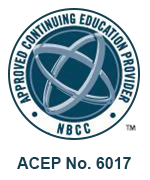IPI's Teaching Objectives
To teach dynamic psychotherapy from the standpoint of the theoretical and clinical contributions of Fairbairn, Klein, Bion, Winnicott, Bowlby, Fonagy & Target, Sutherland, Bollas, Ogden, Ferro, Scharff & Scharff and other contemporary theorists.
To understand the original theories of object relations: Fairbairn’s view of the personality as a system of self and object in dynamic relation; Klein’s projective/introjective identification and intrapsychic positions; Winnicott’s study of the mother-infant dyad; Bowlby’s attachment theory; Bion’s container/contained.
To understand advances in theory such as the analytic third, extractive introjection, parent-infant development, neuroscience, affect regulation in the growth of self, psychic genera, trauma and regeneration, chaos theory, the geography of transference and countertransference, attachment patterns, Pichon-Riviere’s idea of the link, mentalization, and the growth of self reflection.
To apply object relations theory to technique in individual, family, couple and group therapy and to work with institutions, businesses, and organizations.
To integrate theory with personal and clinical experience in small group settings.
To apply the use the therapist’s self to the clinical situation, through understanding transference and countertransference, listening to the unconscious, responding interpretively from inside your own experience, and providing a holding environment.
To further public understanding and acceptance of the role of psychotherapy and psychoanalysis in the mental health of individuals, families and institutions.



